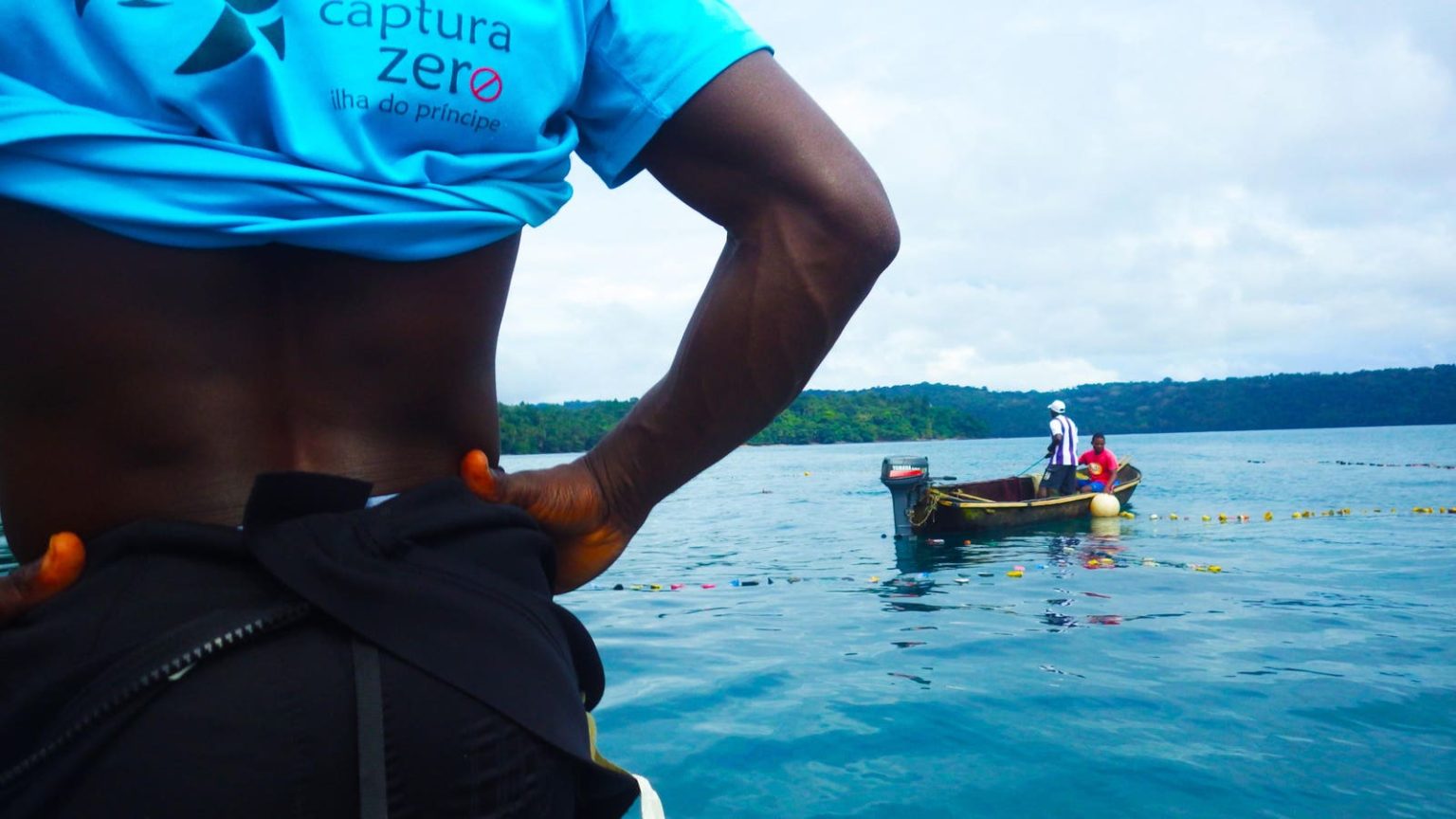Conservationists in Sao Tomé & Principe, a tiny, biodiverse African island nation are using “GPS in a bottle” to track the plastic pollution that plagues their shores.
The island of Príncipe formed 31 million years ago and its tropical forest is one of the most important bird conservation regions in Africa: 57% of the country’s 49 bird species are endemic according to the Convention on Biological Diversity — but its beaches are also key habitat for sea turtles.
Estrela Matilde, out-going executive director of Fundação Príncipe based on the island says that the NGO helped persuade a generation that it is no longer acceptable to consume turtle meat and advocated for the first marine protected area network in the country, but now turtles face a global threat: plastics.
“Despite our local efforts plastic from elsewhere is washed ashore daily: we find turtles with their system full of plastic every season and 25% of the videos collected from the 10 turtles we video-tagged showed plastic in the vital habitat of Principe’s coastal waters,” Matilde says.
In a 2023 study, a team including Matilde found a total of 13,196 items were collected on Principe, with 64.5% of these items being plastic, with a fifth of that being pieces between 1-20 inches, followed in volume by plastic bags and fishing material.
Now the researchers, in partnership with the Portuguese Navy, have launched ten bottles with GPS at different points in Atlantic Coast of West Africa, gathering data on the movements and aggregation of surface plastics in and around the Gulf of Guinea.
“This information, although preliminary, can be used to understand the ocean currents and flow of marine plastic pollution on the region.” she says, “The bottle released close to São Tomé reached, in less than 2 months, its final location in the beach of the Douala-Edéa Fauna Reserve in Cameroon, at around 1400 km of distance from its original point.”
Litoney Matos, incoming director of Fundação Príncipe explains that the NGO hopes to continue to influence all the local, national and international stakeholders to protect the unique biodiversity of the island.
“Príncipe is a live laboratory where we can pilot conservation models that show that it is possible to find the balance between man and nature,” he says.
In 2022, Matilde received a £40,000 Whitley Award from the Whitley Fund for Nature in the UK, which helped fund the project focused on plastic pollution.
Portugal to Principe
Matilde grew up in the coastal Alentejo region in southern Portugal, close to nature, both on land and sea.
“After seeing (the film) Gorillas in the Mist, I found myself in love with Dian Fossey, and my dream was to become like her and to save gorillas,” she says, “So I decided to study to become a biologist.”
During her undergraduate degree, Matilde got the chance to study lowland gorillas — at a zoo in Barcelona, Spain — but still held out hope of being able to get to Africa to study them.
Years later, she would get the opportunity to do a six month stint in either the Azores or Principe; and decided to take a chance on the equatorial African island.
“The first time I landed on this Jurassic Park like island, breathtaking waters and forests, making me think I was going to see a dinosaur at any point… it was love at first sight,” she says, “If you visit Príncipe, it’s not hard to understand how a six-month job turned into 11 years.”
Matilde’s activities evolved from environmental certification and sustainability, to conservation and community engagement.
“I finally found my mission. To change the world, one island at the time!” she says.
Strengthening participation of Global South researchers in tropical ecology and conservation is essential to address diversity, equity and inclusion within the Global South given its socio-economic, cultural and scientific contexts,” she says, adding that sustainable solutions protecting biodiversity in the tropics depends on the leadership of Global South communities.
“Our work on the island has been done with all of this in focus: we are a local organisation with the capacity building of our local team at the heart of our strategies, Matilde says, “My work has been to develop an army of local conservation leaders.”
Island Conservation
On the other side of the planet, Bryant Jeffery Zebedy, from the Marshall Islands is working to conserve the biodiversity of these Pacific islands, including Bikini atoll.
Bikini atoll was used for peacetime atomic explosions between 1946 and 1958, but since been opened up to diving and sport fishing; as a whole, the biodiversity of the Marshall Islands includes 106 species of birds, 37 mammals, 1059 fishes, 728 crabs, shrimps and other crustaceans, 126 starfishes and 40 sponges.
“One of our main goals is to ensure that communities who own protected areas are provided with the best information and tool-kits to manage their resources appropriately,” he says, adding that they provide consultations to help communities have a better understanding of how essential the resources in their areas are.
“The work we do contributes to a broader framework called the Reimaanlok (which means “looking towards the future”) and it ensures that each community in the Marshall Islands gets an atoll profile based on results of assessments that would encourage locals to secure their resource management plans,” Zebedy says.
Read the full article here





